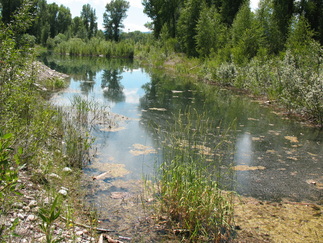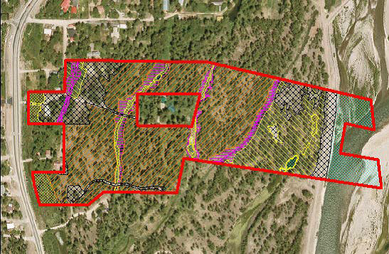Ecological Assessments & Natural Resource Inventories
Baseline ecological inventories
Environmental analyses
Natural resource inventories
Development suitability studies
Environmental feasibility studies
Impact analysis
Ecological assessments are generally performed for private landowners wishing to donate conservation easements, develop properties in an environmentally sensitive manner, or for compliance with various regulations. Results are integrated into reports that describe and visually depict (with maps, aerials, and photographs) the environmental characteristics of the property, summarize potential impacts (both negative and beneficial), and make recommendations for maintaining and/or enhancing critical natural resources.
Biota has over 20 years experience conducting baseline inventories for conservation easements. These inventories document both the biotic and abiotic conditions of a property, including key ecological, scenic, historic, and land-use features. Baseline inventories are conducted prior to establishment of a conservation easement and are used as a reference point for management, stewardship and long-term monitoring.
Biota has over 20 years experience conducting baseline inventories for conservation easements. These inventories document both the biotic and abiotic conditions of a property, including key ecological, scenic, historic, and land-use features. Baseline inventories are conducted prior to establishment of a conservation easement and are used as a reference point for management, stewardship and long-term monitoring.

Biota has also completed numerous environmental analyses (EAs) for private developments in Teton County, Wyoming as required by the county's Land Development Regulations. The EA process involves an ecological inventory with emphasis on wildlife species of special concern, and an assessment of impacts associated with various development scenarios. Field data is collected, entered into a GIS database, analyzed, and provided to the county in the form of a high-quality professional report and supporting digital files.
Natural resource inventories (NRIs) involve on-site investigations of geology, soils, hydrology, vegetation, wetlands, wildlife habitat, and development suitability. In addition, individuals with specific knowledge related to the area of interest are interviewed. NRIs are often conducted prior to changes in land use but can also be valuable for anyone wishing to understand the ecological assets of their holdings.
Natural resource inventories (NRIs) involve on-site investigations of geology, soils, hydrology, vegetation, wetlands, wildlife habitat, and development suitability. In addition, individuals with specific knowledge related to the area of interest are interviewed. NRIs are often conducted prior to changes in land use but can also be valuable for anyone wishing to understand the ecological assets of their holdings.

Environmental feasibility studies involve assessment of specific plans or alternatives for infrastructure and often compare the overall impacts of various development scenarios. These studies are generally conducted in conjunction with larger engineering and construction feasibility studies.
